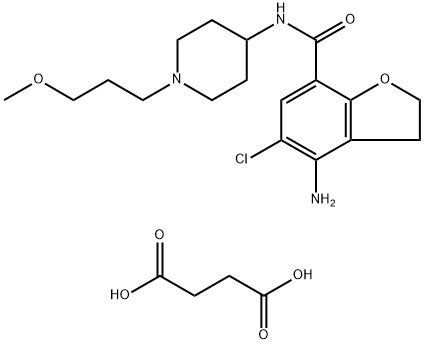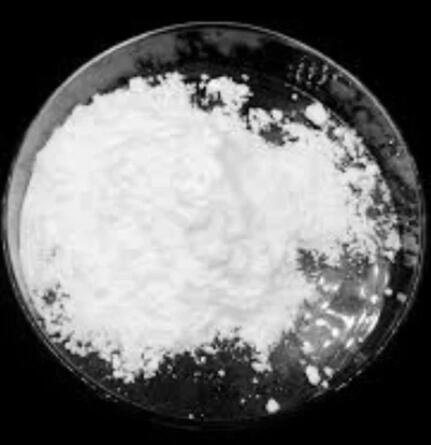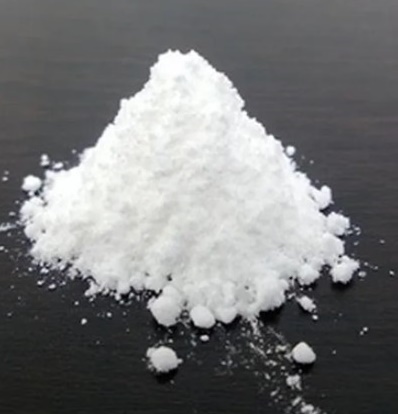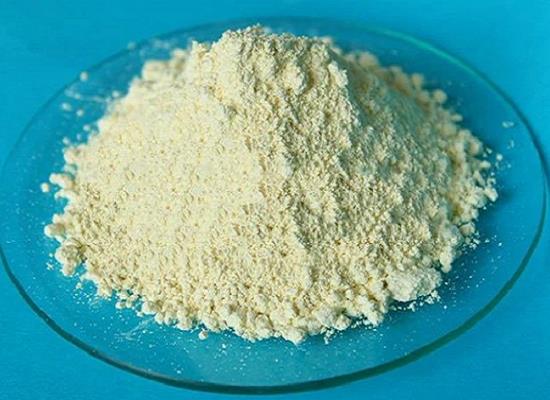Prucalopride Succinate: A prokinetic agent
Description
Prucalopride succinate (Pru) is a novel anti-constipation agent. The IUPAC name of the drug is 4-amino-5-chloro-N-[1-(3-methoxypropyl)piperidin-4-yl]-2,3-dihydro-1-benzofuran-7-carboxamide;butanedioic acid. It is always used as a prokinetic agent to relieve constipation and is formulated as Resolor® tablets.
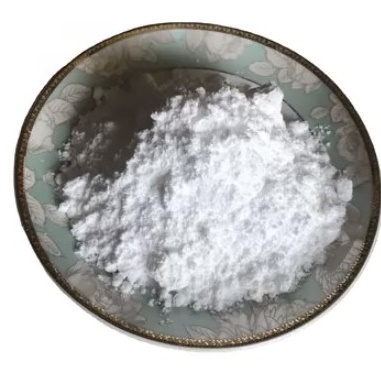
Uses
Prucalopride, a selective 5-hydroxytryptamine receptor 4 agonist, was introduced to the market in 2009 and has been commercially available in Europe since 2010[1]. Prucalopride succinate is known to be a selective 5-hydroxytryptamine receptor 4 agonist which subsequently stimulates impaired colon motility and is used for the treatment of constipation by normalizing the bowel movement.
Drug detection
Since most of the drug is excreted mainly through urine, and the ability of patients with impaired kidneys to excrete the drug decreases, it can lead to toxicity and life-threatening if the dose of the drug is not adjusted properly. Therefore, measuring the amount of drug in the urine is important to determine whether the dose of the drug is appropriate. At present, it seems that only seven analytical methods were reported for the determination of Pru including spectrophotometric methods, chromatographic methods, and recently voltammetric methods. Elshahed et al. developed a highly sensitive spectrofluorimetric method that is developed for the determination of prucalopride succinate (PRU). The method depends on lanthanide-sensitized luminescence[1]. The limit of detection was found to be 2.81 ng/mL. Elshahed et al. developed a portable solid-contact potentiometric sensor that is based on zeolite-carbon paste. It was successfully used for the determination of Pru in tablets. Prucalopride succinate has been reported to be excreted unchanged in urine 60–65%. So, it facilitates the performance of excretion studies[2].
References
[1] Saad M, et al. Bioanalytical Validated Spectrofluorimetric Method for the Determination of Prucalopride succinate in Human Urine Samples and Its Greenness Evaluation. Journal of Fluorescence, 2023; 33: 1609–1617.
[2] Elshahed M, et al. A portable solid-contact potentiometric sensor based on zeolite-carbon paste for assay of prucalopride succinate in tablet dosage form: Green profile assessment. Measurement, 2022; 204: 112071.
You may like
Related articles And Qustion
See also
Lastest Price from Prucalopride Succinate manufacturers
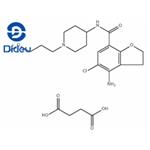
US $0.00/kg2025-03-06
- CAS:
- 179474-85-2
- Min. Order:
- 1kg
- Purity:
- 99%
- Supply Ability:
- 10000KGS
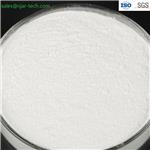
US $0.00/g2025-01-13
- CAS:
- 179474-85-2
- Min. Order:
- 1g
- Purity:
- More Than 99%
- Supply Ability:
- 100kg/Month
